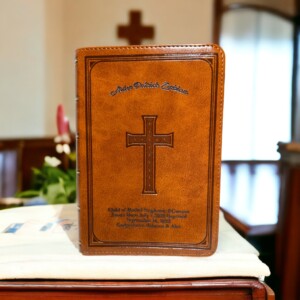
Reexamining Easter Through the Lens of Scripture
As the sunrise colors the early spring mornings, millions of Christians worldwide prepare to celebrate Easter, a time deeply enshrined in religious tradition and heartfelt observance. It stands as a pillar of Christian faith, second only to Christmas in its sacredness, commemorating the resurrection of Jesus Christ. The imagery of crosses, the gathering of families, and the sounds of hymns fill the air, embodying a collective reflection on the cornerstone of Christianity: Jesus’ victory over death.
Yet, amidst the reverence and rituals, a question emerges from the pages of the Bible, casting a gentle but persistent shadow over the Easter lilies and pastel-hued decorations. Should Christians, in their earnest desire to honor the resurrection of Christ, observe Easter as it is known today? This question does not stem from skepticism about the resurrection itself—scripture resoundingly affirms that miraculous event—but rather from a quest for biblical authenticity in our expressions of faith.
The Bible, our compass and guide, offers a narrative of salvation, sacrifice, and renewal, culminating in the resurrection of Jesus. The Apostle Paul eloquently states, “For I delivered to you first of all that which I also received: that Christ died for our sins according to the Scriptures, and that He was buried, and that He rose again the third day according to the Scriptures” (1 Corinthians 15:3-4). Paul’s testimony underscores the resurrection not as a yearly celebration but as the bedrock of Christian faith, a truth to be held in the heart daily.
Moreover, Romans 1:4 affirms, “He was declared to be the Son of God with power according to the Spirit of holiness, by the resurrection from the dead.” These passages do not allocate a special day for remembrance; instead, they invite believers to live in the light of the resurrection every day, allowing it to transform our lives and faith continuously.

As we delve deeper into the tradition of Easter, a critical examination reveals its roots entangled not in the scripture but in a mosaic of history, translation, and adaptation. The term “Easter” itself makes a solitary appearance in the King James Version of the Bible, and notably, as a mistranslation. Acts 12:4 introduces “Easter” in a context that scholars agree should reference “Passover,” a significant Jewish festival. This linguistic oversight opens a broader discussion about the origins of Easter traditions and their alignment—or lack thereof—with biblical directives.
The foundation of Easter, when examined through the lens of scripture, presents a compelling narrative. It beckons us to sift through centuries of tradition, to separate the wheat of scripture from the chaff of cultural accretions. As followers of Christ called to discernment and truth, our journey is not to question the resurrection’s power but to ensure our practices and observances are rooted firmly in the Word of God.
In this light, the celebration of Easter, as a confluence of pagan traditions and Christian motifs, invites a thoughtful inquiry. Does it stand as a testament to our faithfulness to scripture, or has it drifted into the realm of cultural observance, distanced from the biblical call to remember Christ’s sacrifice and victory over death in the way He instructed?
This exploration is not a path to condemnation but to clarity, seeking to align our expressions of faith with the teachings of the Bible. As we embark on this journey through scripture, tradition, and history, let us do so with open hearts and minds, ready to embrace the truth of God’s Word in our observance and celebration of the profound mystery of the resurrection.

The Origin and Evolution of Easter
As we peel back the layers of Easter’s history, it becomes evident that its traditions, as practiced by many today, have strayed from the scriptural narrative. The exploration of Easter’s origins is not merely academic but a journey toward understanding how traditions have shaped, and sometimes overshadowed, the essence of Christian observance.
Easter’s Linguistic Roots: A Mistranslation Revealed The term “Easter” appears only once in the King James Version of the Bible, and even then, it stands as a testament to translation challenges rather than biblical endorsement. Acts 12:4’s mention of “Easter” is widely acknowledged as a mistranslation of “pascha,” the Greek term for Passover. This singular instance has led to centuries of misinterpretation, guiding millions to associate Easter with Christian tradition without a scriptural basis.
From Passover to Easter: A Shift in Celebration The transition from Passover, a significant Jewish festival commemorating deliverance from Egypt, to Easter, a celebration marked by bunnies and eggs, underscores a profound shift in religious observance. This evolution reflects not an organic growth from Christian doctrine but the incorporation of external, often pagan, influences into the fabric of Christian tradition.
Pagan Origins and Syncretism The nexus between Easter’s customs and pagan traditions cannot be overlooked. Historically, the festival of Astarte, celebrating the Chaldean goddess of fertility, coincided with the period we now recognize as Easter. Symbols of fertility and renewal, such as eggs and rabbits, found their way into Easter observances, muddling the focus on Christ’s resurrection with elements foreign to biblical teachings.
Adaptation of Pagan Festivals in Christian Practice The early church faced pressure to increase conversions and, in doing so, adapted pagan festivals, giving them a Christian veneer. This strategy, aimed at making Christianity more palatable to pagan converts, led to the amalgamation of traditions that today’s Easter celebrations often exhibit. However, this blending of practices raises questions about the purity of Christian observance and the fidelity to scripture.
The Bible’s Silence on Easter Observance A critical examination of scripture reveals no mandate to celebrate Easter as a distinct holiday. The New Testament emphasizes remembrance of Christ’s death and resurrection as central to Christian faith but specifies no annual festival for this purpose. The apostolic church focused on the Lord’s Supper as a regular observance for remembering Christ’s sacrifice, a practice significantly removed from modern Easter celebrations.
In light of these insights, the question arises: Should Christians continue to observe Easter in its current form, adorned with traditions of dubious origin, or seek a return to the simplicity of scriptural practice? The answer lies not in the rejection of celebration but in realigning our practices with the core of Christian faith, ensuring that Christ’s resurrection remains at the heart of any observance.
This section invites us to reflect on our adherence to traditions and to consider whether our practices honor the scriptural account of Christ’s resurrection or inadvertently perpetuate elements that distract from its profound significance.

Biblical Observance vs. Modern Easter Traditions: Where Should Our Allegiance Lie?
As followers of Christ seeking to navigate the waters of faith and tradition, we must confront a pivotal question: How do modern Easter traditions align with the biblical model of remembrance? This inquiry challenges us to scrutinize the customs we hold dear against the backdrop of scriptural directives.
Do Our Celebrations Reflect the Scriptural Record? Scripture presents the resurrection of Jesus as a cornerstone of Christian faith, a miraculous event that forever altered the course of human history and individual destinies. Yet, when we examine popular Easter traditions—egg hunts, chocolate bunnies, lavish meals—are we truly commemorating this pivotal moment as the Bible guides us, or have we drifted into cultural expressions that dilute the profound spiritual significance of Christ’s victory over death?
The Weekly Commemoration of Christ’s Sacrifice The New Testament reveals a pattern of remembrance that is markedly different from the annual Easter observance. Acts 20:7 and 1 Corinthians 16:1,2 highlight the early Christians’ practice of meeting on the first day of the week, Sunday, to break bread and worship together. This regular gathering was not merely a ritual but a profound act of remembering Jesus’ death and resurrection. Gathering in His Name: Why Sunday Worship and Communion Matter delves deeper into why this weekly observance holds significant meaning for believers, offering a model of worship that aligns closely with apostolic teachings.
Is There Room for Tradition in Christian Worship? Traditions, in themselves, are not inherently negative. They can provide a sense of community, continuity, and identity. However, when traditions begin to overshadow or distort the essence of our faith, a reevaluation is necessary. The challenge lies in discerning which practices enhance our connection to Christ and which divert our focus from Him.
Realigning Our Practices with Biblical Teachings In seeking a faith expression true to the teachings of Jesus and the apostolic church, we must weigh our traditions against the Word of God. This does not mean abolishing all forms of celebration but rather ensuring that our observances grow out of a desire to honor Christ according to the scriptures. Understanding Old Testament Laws: Civil, Ceremonial, and Moral offers insights into discerning which Old Testament practices carry forward into New Testament worship, helping believers navigate the balance between law and grace.
Embracing a Scripturally Anchored Observance
The journey through Easter’s history, traditions, and the scriptural mandate for remembrance invites us to a deeper understanding and a more intentional practice of our faith. As we reflect on the resurrection of Jesus Christ, let us strive for observances that resonate with the truth of Scripture, embracing ways of worship that genuinely reflect our reverence and love for our Savior.
Invitation to Reflect and Act As believers called to live in the light of the resurrection, how can we ensure our celebrations truly honor Christ? Let us engage with this question not just in the season of Easter but throughout our journey of faith, seeking ways to remember and proclaim the death and resurrection of Jesus Christ in a manner that aligns with biblical teachings.
This exploration is not an endpoint but a beginning—a call to explore, question, and align our practices with the profound truths of our faith. As we continue to grow in our understanding and expression of worship, may our hearts always be drawn closer to the heart of God, celebrating the resurrection with depth, sincerity, and biblical fidelity.

How Can We Authentically Celebrate the Resurrection Year-Round?
In light of the contrasts between scriptural directives and modern Easter traditions, believers are faced with a crucial inquiry: How can we authentically celebrate the resurrection of Jesus Christ not just annually, but in a manner that permeates our daily lives? This question beckons us to realign our focus towards practices that resonate with the continuous celebration of Christ’s victory over death.
What Does Scripture Suggest? The New Testament does not prescribe a once-a-year commemoration of Christ’s resurrection but rather embeds the memory of this pivotal event in the weekly gathering of believers. Each Sunday, historically known as the Lord’s Day, marks the day Jesus rose, offering a weekly opportunity for reflection and rejoicing in His resurrection power. How, then, can we infuse our every day, and especially each Sunday, with a deeper sense of this celebration?
Weekly Remembrance through Communion One of the most profound ways to remember Christ’s sacrifice and victorious resurrection is through the Lord’s Supper. This act of breaking bread and drinking from the cup, as detailed in Acts 20:7, is a direct command from Jesus to do in remembrance of Him (1 Corinthians 11:24-25). Each participation in communion is a personal and communal reaffirmation of His death, resurrection, and the promise of His return. The significance of this weekly observance is explored in depth in “Gathering in His Name: Why Sunday Worship and Communion Matter”, offering insights into how it serves as a cornerstone for Christian worship.
Integrating the Message of Resurrection into Daily Life Beyond the weekly observance, living in the light of the resurrection means allowing the reality of Christ’s victory to influence our daily decisions, interactions, and mindset. It means walking in the newness of life promised in Romans 6:4, where we too, like Christ, are raised from the dead by the glory of the Father to walk in newness of life. This transformation is not confined to a single moment but is an ongoing journey of becoming more like Christ.
Music as a Vehicle for Celebration and Reflection Worship through music is another powerful way to celebrate the resurrection. The role of music in worship, as discussed in “Singing from the Soul: Understanding the Role of Music in Worship”, highlights how songs and hymns about Christ’s resurrection can fortify our faith and bring us closer to the heart of worship. Incorporating music that focuses on the resurrection into our personal and corporate worship can elevate our spiritual experience and deepen our connection to this central tenet of our faith.
Service and Witnessing Living out the resurrection also means being active in service and witnessing. As we embody the love, grace, and power of the resurrected Christ, our lives become a testament to His life-changing power. Engaging in acts of kindness, sharing the message of hope with others, and being a beacon of light in a world in need are practical expressions of celebrating the resurrection every day.

Resurrection as a Way of Life
The call to align our Easter observances with scriptural teachings ultimately invites us to embrace the resurrection of Jesus Christ as a way of life. It’s about moving beyond the trappings of tradition to a living, breathing, daily celebration of the victory Jesus won over sin and death. This doesn’t diminish the importance of Easter but rather elevates our understanding and observance to a level that permeates every aspect of our lives, every day of the year.
Let us, therefore, approach our remembrance and celebration with hearts aligned with Scripture, minds renewed by the truth of the gospel, and lives that reflect the transformative power of Christ’s resurrection. In doing so, we not only honor the biblical mandate but also engage in a form of worship that is truly pleasing to God, deeply impactful, and richly rewarding for us as believers.
As an Amazon Associate we earn from qualifying purchases through some links in our articles.



